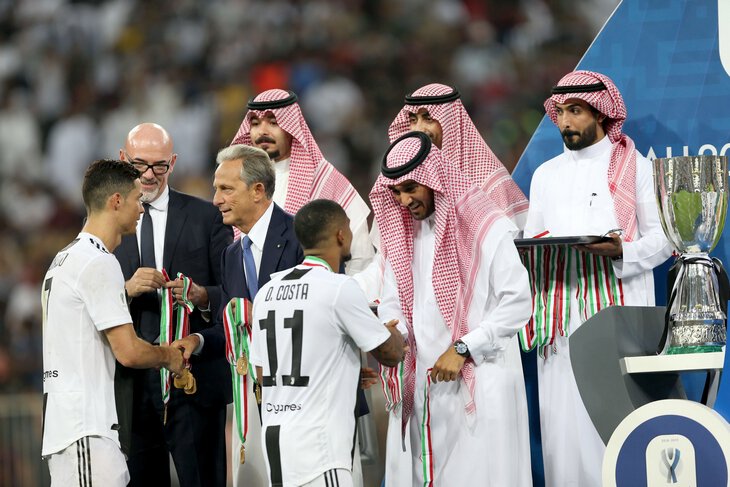World Cup 2030 may be held in Saudi Arabia, Egypt and Greece. How did such a strange alliance come about?
Saudi Arabia, Egypt and Greece have agreed to submit a joint bid to host the 2030 World Cup. If the application wins, then the World Cup will be held for the first time on three continents at once. True, for this you need to bypass at least four competitors.
The set of countries that made up the application seems paradoxical at first glance. After all, earlier joint applications were submitted by neighbors, united in most cases by history and mentality. But what do the theocratic kingdom of Saudi Arabia, the Arab Republic of Egypt and Greece have in common? In fact, much more than it seems.
Is it possible
First of all, it is important to understand that the participants of the application are unequal partners. Nobody hides that the leader and initiator of the campaign is Saudi Arabia. She also promises to pay all costs, including the construction of new stadiums not only in her own country, but also in Egypt and Greece. If, of course, the application is approved.
Of course, Saudi Arabia, with its monetary power, could well organize the hosting of the 2030 World Cup alone, but the FIFA rule on the rotation of the continents of the World Cup made this impossible. Eight years before the 2030 World Cup, Qatar will host the tournament, which makes a single Asian candidate completely impassable.
But Saudi Arabia really wants to host the tournament in 2030, and even hired consultants from the Boston Consulting Group to solve the problem. And this is not just a whim of fabulously rich sheikhs. As conceived 1win-az.net by the de facto leader of the country, Crown Prince Mohammed bin Salman, the World Cup should become a bright culmination point of the state strategy Vision-2030, adopted in 2016.
< p>
This strategy provides for large-scale transformations in the country's economy, as well as a change in its international image. By 2030, Saudi Arabia must transform from a kingdom closed to the outside world, living off oil wealth, into a modern secular state, attractive to both foreign investment and tourists.
Football plays a crucial role in this strategy. Saudi Arabia spares no expense to become a prominent player in the football market. In 2019, they signed a contract with the Spanish Football Federation, which received 120 million euros for hosting the Super Cup at the stadiums of Saudi Arabia for three years, and in 2021 the contract was extended until 2029. A similar agreement (though much more modest for 20 million euros for three finals) is also valid with the Italian Football Federation.

Another image move of the strategy is the purchase of Newcastle by the sovereign wealth fund of Saudi Arabia for 300 million pounds.
In July 2021, the authoritative The Athletic reported that Saudi Arabia agreed with Italy on a joint application for the 2030 World Cup. At the same time, Plan B was developed, according to which one of the North African countries, Morocco or Egypt, or both could become a partner of Saudi Arabia.
The final version turned out to be a mix of the two previous ones: Morocco filed its own application, and the North African partner of the Saudis remained Egypt, and Greece took the place of Italy.
The organizers will surely be tempted to use the image of three countries that played a crucial role in the birth of human civilization and are united by a passion for football from Egyptian pharaohs through ancient Greek philosophers and playwrights to Arab scientists and inventors . The picture can be really beautiful. Moreover, these three countries share not only a legendary past, but also a geopolitical present: both Egypt and Greece are the most important strategic partners and allies of Saudi Arabia, which claims to be the main force in the Middle East region and an authoritative partner for the countries of southern Europe.
share £